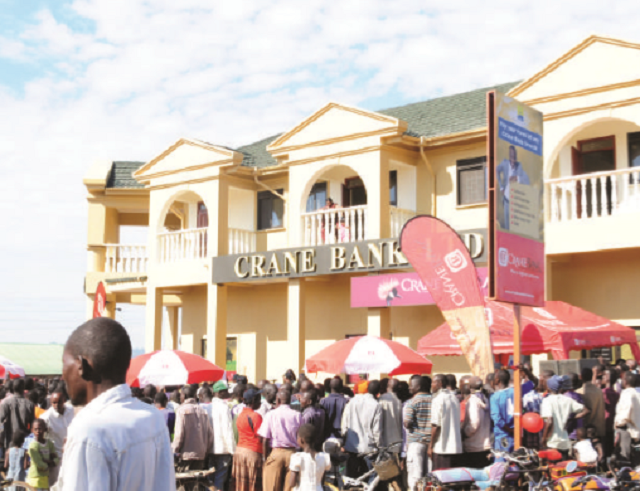
Kampala, Uganda | THE INDEPENDENT | Parliament’s Committee on Commissions, Statutory Authorities and State Enterprises (COSASE) has directed the Auditor General to carry out an audit into the sh478 billion injected into Crane Bank Limited by the Central Bank.
The money was injected into the defunct Bank by the Central Bank following the statutory takeover on 20th October 2016.
This money according to Bank of Uganda (BoU) officials was for liquidity support to keep Crane Bank Limited open so as to avoid systemic shocks to the banking industry.
However, tasked to produce accountability on how the money was spent, Central Bank officials availed no documents forcing the COSASE Chairperson Abdu Katuntu to seek Auditor General Intervention.
Katuntu directed the auditors to among others establish whether it was necessary to inject Shillings 478 billion into Crane Bank Limited by the Central Bank.
There was a lengthy debate between legislators on the committee and Bank of Uganda officials over the reasons for the injection of funds and why the Central Bank decided to fold the Bank instead of reviving it following such a huge expenditure of tax payer’s money.
Kasilo County MP Elijah Okupa wondered how the Central Bank failed to avail accountability for the money when the Statutory Manager of the Bank Katimbo Mugwanywa was available.
Katuntu said that without accountability for the funds, his committee cannot confirm that the money was actually used or not. He also noted how Central Bank’s intervention into Crane Bank remains the most costly in all the seven commercial banks so far closed.
Section 18 of the National Audit Act allows the Auditor General to inquire into, examine, investigate and report on the expenditure of public money dispersed, advanced or guaranteed to a private organization or body in which government has no controlling interest.
Deputy Governor Louis Kasekende welcomed the directed audit into the public funds.
Crane Bank Limited was closed on October 30, 2016. Central Bank Governor Emmanuel Tumusiime Mutebile said the action was taken upon a determination that Crane Bank was a significantly under-capitalized institution and posed systemic risks to the stability of the financial systems in the country.
Mutebile stated back then that the continuation of Crane Bank activities was detrimental to the interests of its depositors because the bank had fallen below the 50 percent of the statutory requirement of 25 billion Shillings. He added that the problem was partially caused by a number of bad and doubtful loans that could have undermined the performance of the bank.
***
URN
 The Independent Uganda: You get the Truth we Pay the Price
The Independent Uganda: You get the Truth we Pay the Price



